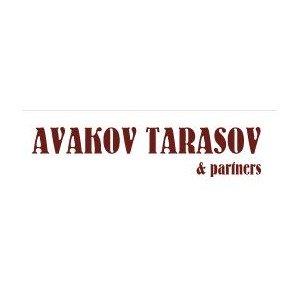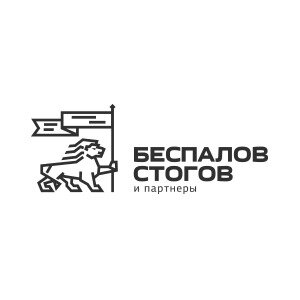Best Corporate Governance Lawyers in Russia
Share your needs with us, get contacted by law firms.
Free. Takes 2 min.
Or refine your search by selecting a city:
List of the best lawyers in Russia
About Corporate Governance Law in Russia
Corporate governance in Russia refers to the system of rules, practices, and processes by which corporations are directed and controlled. This includes the interactions between a company’s management, its board of directors, shareholders, and other stakeholders. Russian corporate governance laws have undergone significant reforms since the early 2000s, aiming to increase transparency and protect shareholder rights, especially following the adoption of the Russian Corporate Governance Code. The overarching goal is to improve corporate accountability and align Russian companies with international standards.
Why You May Need a Lawyer
Navigating corporate governance issues in Russia can be complex, and legal help is invaluable in the following situations:
- Formation of a company or restructuring existing corporate structures
- Drafting or reviewing corporate charters, bylaws, and internal policies
- Managing board of directors’ activities, including organizing meetings and decision-making
- Addressing conflicts between shareholders or between shareholders and management
- Ensuring compliance with statutory disclosure, reporting, and transparency requirements
- Implementing or reviewing risk management and internal control procedures
- Facilitating mergers, acquisitions, or corporate reorganization
- Responding to regulatory investigations or administrative proceedings
- Protecting minority shareholders’ rights
- Advising on best practices for environmental, social, and corporate governance (ESG) standards
Local Laws Overview
Several legislative acts govern corporate governance in Russia. The main sources of law include:
- The Civil Code of the Russian Federation - sets the fundamental rules for forming and operating legal entities
- The Federal Law on Joint-Stock Companies - regulates the governance of joint-stock companies, including shareholders’ rights and the role of boards
- The Federal Law on Limited Liability Companies - outlines the internal structure of LLCs, their management bodies, and decision-making procedures
- The Russian Corporate Governance Code - provides recommended best practices for public companies to increase transparency and protect investor interests
- Securities market legislation - overseen by the Central Bank of Russia, especially relevant for public companies and regulated entities
Key aspects emphasized by local laws include clear divisions of power between governance bodies, protection of shareholder rights, mandatory disclosures, anti-corruption measures, and compliance with international practices.
Frequently Asked Questions
What is corporate governance in the context of Russian law?
Corporate governance refers to the set of rules and practices that direct how companies are controlled and operated. It regulates relationships among management, the board of directors, shareholders, and other stakeholders, aiming for transparency, accountability, and fairness.
Who is responsible for corporate governance in a Russian company?
Responsibility typically rests with the board of directors, the company’s management bodies, shareholders, and, in some cases, supervisory boards or committees depending on company structure and legal requirements.
What are the main types of business entities in Russia?
The most common are Joint-Stock Companies (JSCs) and Limited Liability Companies (LLCs). JSCs can be public or private, while most small and medium enterprises operate as LLCs.
Are Russian companies required to adopt the Corporate Governance Code?
Adopting the Corporate Governance Code is mandatory for public companies listed on the Moscow Exchange, but it is voluntary for other companies. However, it is considered best practice for increasing transparency and attracting investment.
How are shareholder rights protected in Russia?
Russian law provides mechanisms such as the right to information, the right to participate and vote at shareholder meetings, and remedies for challenging unlawful decisions. The law also guards against unfair dilution of shares.
What disclosure obligations do Russian companies have?
Public companies have strict disclosure requirements, including publishing annual reports, notifying material facts, and maintaining transparency about ownership and management. Private companies have more limited but still defined disclosure duties.
What are the rules about board composition in Russia?
The laws outline minimum and recommended numbers of directors, procedures for election and removal, and independence requirements, especially for public companies. The Code encourages diversity and independent directors.
How are conflicts of interest managed?
Companies must establish and enforce conflict of interest policies. Board members and executives are obligated to disclose conflicts and may be restricted from participating in certain decisions.
What is the liability of directors under Russian law?
Directors and officers can be held personally liable for decisions that result in damages to the company, especially if they acted in bad faith, with gross negligence, or contrary to the company’s interests.
How do I resolve a dispute related to corporate governance?
Disputes can be settled through internal corporate mechanisms, negotiated resolution, or through recourse to Russian commercial (arbitrazh) courts. Arbitration may also be an option if stipulated in the corporate charter or agreements.
Additional Resources
There are several resources and organizations that provide additional guidance on corporate governance in Russia:
- The Central Bank of Russia - regulatory authority overseeing public companies and the securities market
- The Russian Federal Tax Service - registration and compliance for business entities
- Russian Institute of Directors - promotes best practice standards in corporate governance
- The Ministry of Economic Development - policy and reform initiatives, including corporate legislation
- Industry-specific trade associations and business chambers with corporate governance guidelines
Next Steps
If you require legal assistance in corporate governance matters in Russia, consider taking the following steps:
- Consult with a lawyer or legal firm specializing in corporate law and governance
- Gather relevant documents, including your company’s charter, bylaws, and recent meeting minutes
- Define the specific issue or question you need addressed
- Schedule an initial consultation to discuss your needs and receive tailored advice
- Consider ongoing legal support to ensure your company remains compliant with all corporate governance requirements
Staying informed and proactive about governance enhances your company’s reputation, reduces risk, and strengthens its operational foundation.
Lawzana helps you find the best lawyers and law firms in Russia through a curated and pre-screened list of qualified legal professionals. Our platform offers rankings and detailed profiles of attorneys and law firms, allowing you to compare based on practice areas, including Corporate Governance, experience, and client feedback.
Each profile includes a description of the firm's areas of practice, client reviews, team members and partners, year of establishment, spoken languages, office locations, contact information, social media presence, and any published articles or resources. Most firms on our platform speak English and are experienced in both local and international legal matters.
Get a quote from top-rated law firms in Russia — quickly, securely, and without unnecessary hassle.
Disclaimer:
The information provided on this page is for general informational purposes only and does not constitute legal advice. While we strive to ensure the accuracy and relevance of the content, legal information may change over time, and interpretations of the law can vary. You should always consult with a qualified legal professional for advice specific to your situation.
We disclaim all liability for actions taken or not taken based on the content of this page. If you believe any information is incorrect or outdated, please contact us, and we will review and update it where appropriate.
Browse corporate governance law firms by city in Russia
Refine your search by selecting a city.
















